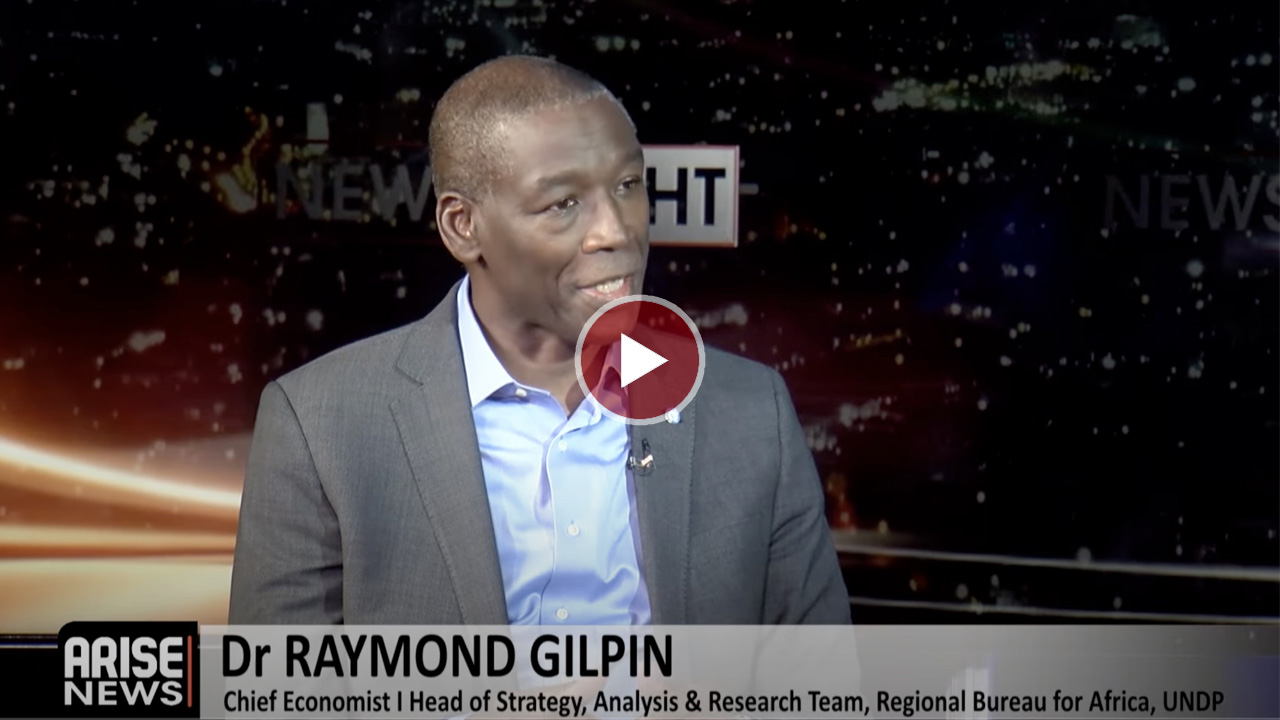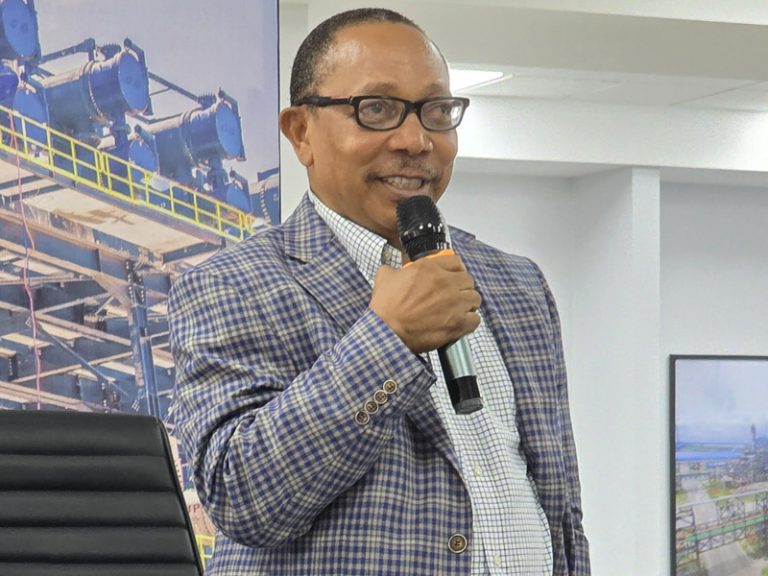

Chief Economist and Head of Strategy, Analysis and Research at the UNDP Regional Bureau for Africa, Dr. Raymond Gilpin, has said Nigeria’s economy is showing signs of progress but warned that macroeconomic gains must begin to translate into real improvements in people’s lives through job creation, competitiveness, and investment in human capital.
Speaking on ARISE News on Wednesday, Dr. Gilpin said, “The conversation earlier today was very on point in terms of the macroeconomic gains that Nigeria has realized over the last couple of years. We’ve seen what was a very vexing issue in the forex market be reasonably stabilized. Growth is moving in the right direction. Inflation is not where the economy needs it to be, but it’s turning in the right direction, and foreign exchange reserves are going up.”
He, however, expressed concern over the rising poverty levels in the country despite these positive indicators. “On the negative, we see an increase in the number of people who are below the poverty line, and that is worrisome. A lot of these issues are related to investments in human capital and incentives for the private sector. We need growth that not only looks good in GDP aggregates but also provides jobs and opportunities for the private sector to become the real engine of growth.”
On Nigeria’s biggest risks, Dr. Gilpin pointed to the lack of adequate economic diversification, noting that the country’s dependence on hydrocarbons has long limited its competitiveness. “If you look at the global economic complexity index, Nigeria is still low because of over-dependence on hydrocarbons. That is changing — we’re seeing the financial and services sectors expand, agriculture becoming smarter and more tech-driven, and some manufacturing returning. Even though diversification is not happening fast enough, there are rays of hope.”
Addressing concerns about why many Nigerians are yet to feel the impact of ongoing reforms, he explained that macroeconomic improvements take time to reflect at the household level.
“Turning macroeconomic gains into lived reality at the micro level takes time. There’s a lag between aggregate growth and improvements for firms and households. A big issue here is trust — does the private sector trust that these reforms and gains will be sustained? That’s something the government must work on.”
Dr. Gilpin also said Nigeria must address competitiveness challenges to fully unlock its growth potential. “In the neighbourhood, Nigeria is the largest economy but not the most competitive. We have to address issues like the institutional and regulatory framework and contract enforcement to translate macro gains into real outcomes.”
Reacting to questions on whether current reforms — such as FX unification and fuel subsidy removal — were sufficient, the UNDP economist said they were a step in the right direction but not enough.
“Both the finance minister and the Central Bank acknowledged this morning that a lot more needs to be done. Inflation in Nigeria is a complex phenomenon because most of the Consumer Price Index is driven by food and fuel. A lot of our food is imported, and that drives costs.”
He urged the government to invest in smart agriculture and domestic food production, saying it would “help save foreign exchange and dampen inflationary pressures.” He added that stronger coordination between fiscal and monetary authorities was crucial: “There’s quite a lot of coordination now, but it must be sustained to avoid fiscal deficits and maintain stability.”
Dr. Gilpin noted that while Nigeria is moving in the right direction, achieving inclusive development requires more targeted action. “To have growth that delivers development, you need to do a few more things. That’s where organizations like UNDP focus — accelerating the Sustainable Development Goals, investing in human capacity, and ensuring industrialisation and job growth translate into development at the household level.”
Speaking on how Nigeria can leverage its vast mineral resources, including lithium and gold, he said the country must re-engineer its value chains to retain more of the wealth derived from natural resources.
“Many see Nigeria’s overabundance of natural resources as a curse, but it’s an opportunity. Currently, primary commodity-exporting countries in Africa retain less than 5% of the value chain. Nigeria needs to ensure that more of that value remains in-country. For instance, if you move from exporting raw lithium to processing it, the benefits to the economy could increase fivefold.”
He added that the country must also integrate its local economy into the extractive sector. *“Contracts for employment, local manufacturing, and supply chains must be part of the negotiation so that you don’t have a completely extractive relationship, but one that’s integrated and benefits the local economy.”
Dr. Gilpin concluded by expressing optimism about Nigeria’s economic direction. “Listening to the World Bank’s report and interventions from the finance ministry and Central Bank, I do think the country is moving in the right direction. What’s needed now is consistency, competitiveness, and investment in people to ensure that growth delivers development that Nigerians can feel.”
Boluwatife Enome



